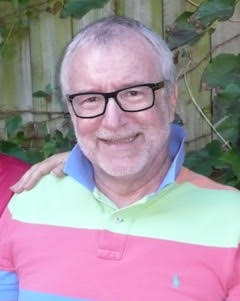CHAI IN THE SKY By Rick Kohler (Article)

Chai in the Sky
I once watched Jane Fonda interviewing the then Archbishop of Canterbury on BBC TV in the UK in the sixties. She asked him a question that had always lingered in me: ‘why is Christianity the only true religion?’ His answer was sympathetic and seemingly open-minded – ‘I see value in Islam, in Judaism, in Hinduism and Buddhism’ he said, ‘but I believe the only true revelation of Christ is reflected in the Christian religion.’
I respected his point of view but I couldn’t help feeling sorry for all the world’s peoples excluded from such affiliation simply by virtue of geography. If one is born in Japan into a Shinto community, why is that person left out? Why wouldn’t that person think Christians are the unlucky ones, that they are excluded from the beauty and revelations of Shintoism’s kami?
If some of us might think the revelations in the Book of Mormon’s Nephi Plates are perplexing, as in South Park’s satirical episode, frankly what is so convincing about Jesus’ story?
Parables have long preceded the Abrahamic continuum, as in the mythological studies carried out by Joseph Campbell; why are they less true? Is not the halo we see painted round the heads of spiritual personages in Renaissance art a throwback to pre-Christian Sun worship?
I can’t accept that a Muslim is out of luck; that a Christian is anointed; that it’s too bad for Sikhs, they’ll all have to go to Hell when it’s over?
And if, to be fair, we extend an embrace to all religions currently co-existing on earth and say that ‘truth’ must exist in the distillation of their common denomination, why not go a step further and suggest that it’s all a collection of allegories -- that we have essentially invented these fables to help humanity deal with the unknown. We don’t know why we’re here and we don’t know what happens to us when we die. What humans don’t know they fear. And to address fear we develop comforting stories to make us feel better – like a pearl is created to sooth the irritation caused in oysters by a grain of sand.
I have little patience with Evolution’s ‘explanations’ that apparently refute religion. Dawkins still misses the point – it may well be empirically demonstrated that human history goes back further than the real-time span covered by the Bible but there is still no explanation for what pre-existed before that first amoeba crawled up on the beach to shape the beginnings of terrestrial life; indeed where did the salt-water lapping at the shore come from? I asked Canada’s then Chief Astronomer, in 2001, what was there before the Big Bang – ‘what place was it in’, I queried ‘when it exploded to create the universe?’ ‘You’ll have to ask a philosopher, not me,’ he replied.
Tennyson’s attempt in “In Memorium” to bridge the gap between Divinity and Darwin, (And one far-off divine event, To which the whole creation moves) is noble but doesn’t get us there either.
My view is that we don’t know and the reason we don’t know is that the human brain is incapable of understanding or appreciating what’s around us. I guess I’m an Agnostic Atheist, or Celestial tea-potist, in homage to Bertrand Russell. There’s no doubt that with advances of technology and wisdom we are increasingly better able to measure ‘progress’ and to discern incremental truths about life in the universe; we are profoundly disposed to wonder in awe at the beauty and mystery of life, in all its complexities. But these do not bring us any closer to truth.
Yes, this author is ill-equipped with philosophical tuition to lightly dismiss the depths of analysis that have gone on over the millennia; this simple argument that humans do not share the right ‘dimension’ to appreciate the human context may be ill-informed. But I am confident that the true Meaning of Life equally baffles even the Kierkegaards, Humes, Schopenhauers and Charles Taylors of this world, in an absolute sense.
It may well be true, the Jesus myth – that God sent Him to save our souls. Manitou, Vishnu, Mohammed and Zeus could be real. But they could all be fictions too.
I lean in the direction that they’re made up; they’ll keep being made up as long as humans thrive on the planet. These last eight thousand years of the Abrahamic pantheon have been a blip in the bigger picture of global history. Perhaps another eight thousand years will see Scientology prevail and L. Ron Hubbard emerge, the new Jehovah?
In the meantime it doesn’t mean that humans cannot strive for ‘good’ existence of some sort – in the sense that Oscar Wilde said ‘there is no such thing as a moral or immoral book; books are either good or bad’. For me, the Existentialists had a decent idea – when you die, you’re the sum of your acts. This is where we can use philosophers – a cross-cultured collection of multi-ethnic sophists to help us distil common truths from the cosmos as we know it, to shape Universal Declarations of latitudes like Human Rights, Right and Wrong, Good and Evil. We could benefit from the precepts of all the religions that surround us to collect the benign, social rules that emerge in common to help us to live together in peace, tolerance and mutual respect.
Ó Richard Kohler, This email address is being protected from spambots. You need JavaScript enabled to view it., Ottawa, 2015
Tags: Rick Kohler
